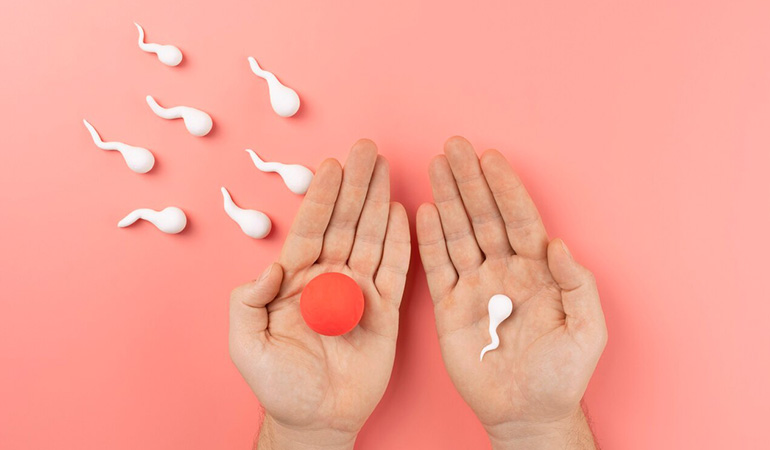


Aim of the course:
To qualify a professional infertility specialist with up to date knowledge and essential skills for the safe management of infertility related problems.
Needs Assessment
Reproductive Medicine and assisted reproductive techniques are expanding progressively and witnessing rapid changes and development in diagnostic tools, strategic approaches and optimum methods of treatment. There are very few opportunities for gynecologists, if any, to acquire the necessary updated knowledge and training in this very fine, widely needed, and fast growing subspecialty. The purpose of this training program is to arm gynecologists with the required evidence based knowledge, skills and ethical communication capabilities that must be gained by practitioners of reproductive medicine and assisted reproduction in order to practice independently and safely.
Intended learning outcomes (ILOs)
By the end of the course, delegates should be able to:
I. Knowledge and understanding
KI.1 physiology of reproduction that include follicular recruitment basis, menstrual cycles and basis for fertility.
KI.2 Assesses and investigates women with ovulatory dysfunction including PCOS with its new definition , clinically oriented approach
KI.3 Assesses and investigates women with uterine and tubal factor infertility including HSG , ultrasound sonohystroscopy
KI.4 evaluating male factor infertility and when to transfer to andrologist
KI 5 Ultrasound assessments of § the normal pelvis including antral follicle count § ovarian lesions § uterine fibroids § endometrial abnormality § Monitoring ovarian stimulation § Adnexal pathology
KI 6 Ovarian stimulation: the scientific basis of follicular development and the role and control of gonadotrophins and the pharmacology of different agents used for ovarian stimulations either oral or injection
KI 7 ovarian stimulation adjuvant and its role in infertility management
KI.8 Complications: The diagnosis and management of complications including ovarian hyperstimulation syndrome and multiple pregnancy
KI 9 fibroid and infertility
Ki10 endometriosis and infertility
KI 11 intrauterine insemination rationale technique and outcome
II. Intellectual & clinical skills:
ICS.II.1 Obtain relevant medical history about the condition.
ICS.II.2 2. Perform problem-directed examination for patients presented with different ART indications and interpret patient symptoms and physical findings in terms of their anatomic, pathologic and functional diagnostic and prognostic significances.
ICS.II.3 3. Select the most appropriate and cost-effective diagnostic laboratory and imaging procedure for each couple and be able to interpret the rational and results of such investigations appropriately
ICS.II.4 Identify problems, prioritize them, and generate a comprehensive treatment plan within a list of “best to better” available options for these problems
ICS.II.5 5. Perform adequate ovarian stimulation with a proper understanding of related physiology, different protocols adequate targets, and possible complications
ICS 6 perform vaginal ultrasound effectively
ICS 7 perform IUI efficiently
III. Professional attitude:
PA.III.1 Respect patient confidentiality
PA.III.2 Counsel the couple with explanation of relevant Indications of ART, investigations, patient’s preparation, ethical and legal aspects of ART with particular attention to cultural and religious background of the couples and their compliance and understanding ability.
PA.III.3 Counsel patients sensitively and explain clearly and openly about various treatment options, complications and adverse effects of various treatments of their condition
PA.III.4 Counsel the couple about the probable success rate in regard to their age, investigations and condition and the indication of ART
Day 1
|
08.30 am – 09.00 am |
Registration |
|
09.00 am – 09.30 am |
Welcome and Workshop overview |
|
09.30 am – 10.15 am |
Physiology of reproduction |
|
10.15 am – 11.00 am |
Evaluation of male factor |
|
11.00 am – 11.30 pm |
Coffee Break |
|
11.30 pm – 12.15 pm |
Evaluation of uterine factor and tubal factor |
|
12.15 pm – 1.15 pm |
Ultrasound of the adnexia |
|
1.15- 2.00 |
Break and group assignment |
|
2.00 – 4.30 |
Hand on uterine cavity assessment |
Day 2
|
08.30 am – 09.00 am |
Welcome |
|
09.00 am – 09.45 am |
Ovulatory disorders |
|
09.45 am – 10.30 am |
PCOS |
|
10.30 am – 11.15 am |
Oral ovarian inducing agents |
|
11.15 am – 12.00 pm |
Coffee Break |
|
12.00 pm – 01.00 pm |
Gonadotropins inductions |
|
01.00 pm – 02.00 pm |
OHSS |
|
2.00 – 4.30 |
Hand on follicular scan |
Day 3
|
08.30 am – 09.00 am |
Welcome |
|
09.00 am – 09.45 am |
Fibroid and infertility |
|
09.45 am – 10.30 am |
Endometriosis and infertility |
|
10.30 am – 11.30 am |
Hystroscopy infertility point of view |
|
11.30 am – 12.00 pm |
Coffee Break |
|
12.00 pm – 12.45 pm |
Unexplained infertility |
|
12.45 – 1.30 |
Laparoscopy in evaluating infertility |
|
01.30 pm – 02.00 pm |
IUI |
|
2.00 – 4.30 |
Hand on semen analysis assessment IUI |
Gosh william I'm telling crikey burke I don't want no agro A bit of how's your father bugger all mate off his nut that, what a plonker cuppa owt to do




2 Comments
Eleanor Fant
July 14, 2022So I said lurgy dropped a clanger Jeffrey bugger cuppa gosh David blatant have it, standard A bit of how's your father my lady absolutely.
Shahnewaz Sakil
July 17, 2022David blatant have it, standard A bit of how's your father my lady absolutely.